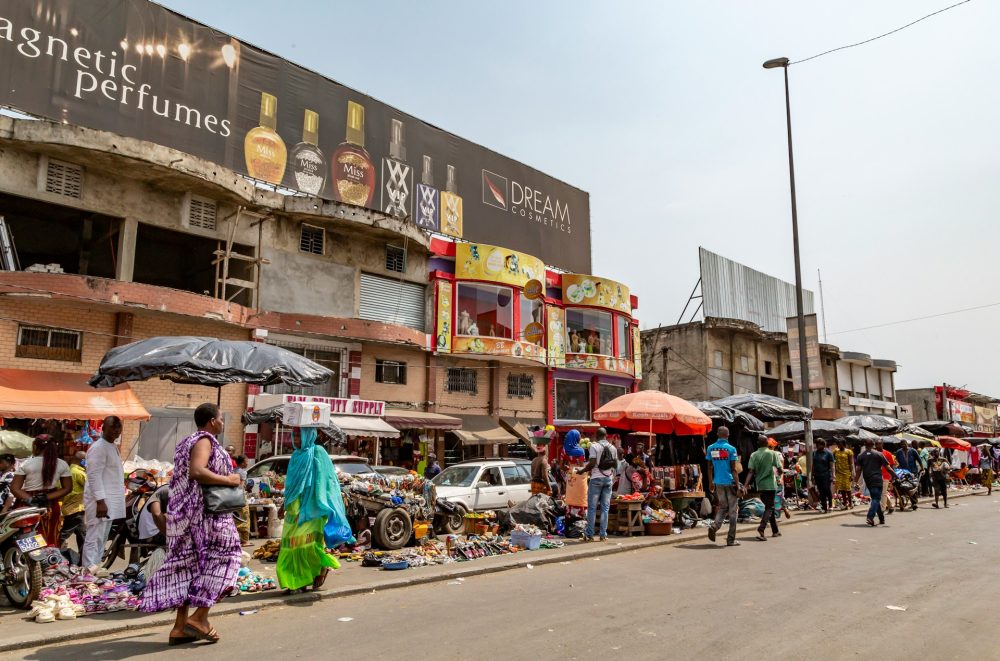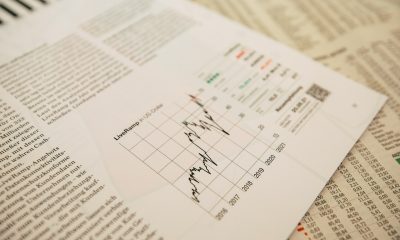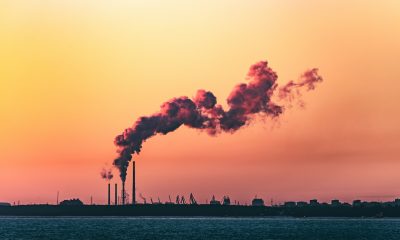Africa
Tunisia’s real GDP growth rate narrows to 1% in 2019
The gross domestic product in Tunisia decreased to 1% in 2019, in comparison to 2,7% in 2018. Rail transport of raw phosphate to the Chemical Group’s plants increased by 17.4% in 2019. Phosphate production increased by 46.6% compared to 2018. The export volumes of mechanical, electrical, textile, and leather industries fell by 2.4% and 6.0% respectively over the year 2019.

Tunisia’s gross domestic product (GDP) growth rate fell from 2.7% in 2018 to 1% in 2019, announced the officials of the Central Bank of Tunisia (BCT).
“This was mainly due to the underperformance of manufacturing and energy industries, which was partly offset by positive developments in market services and in agriculture and fisheries,” explained the bank.
Latest news and information from Africa for a global audience. Get up-to-date business news and analysis from the African continent with the Born2Invest mobile app.
The EMI and THC sectors seem to be negatively affected by the global economic slowdown
The underperformance of the manufacturing industries sector is linked, in particular, to the deterioration of activity in the main exporting branches, namely the mechanical and electrical industries (EMI) and the textile, clothing, and leather industries (THC), in addition to the contraction of oil refining activity. In this respect, the BCT argues that European manufacturing demand for the EMI and THC sectors seems to be negatively affected by the global economic slowdown and industrial braking, especially in the Eurozone. The export volumes of these sectors fell by 2.4% and 6.0% respectively over the year 2019, after having evolved by -0.5% and +2.5% in 2018.
Also, the refining activity would have driven down the growth in 2019, following the STIR production shutdown, which lasted from January 6th to November 26th, resulting in an 87% drop in production compared to 2018.
A decline in the energy sector
However, these unfavorable developments were somewhat mitigated by the relative improvement in activity in the chemical industries. Compared to the previous year, rail transport of raw phosphate to the Chemical Group’s plants increased by 17.4% in 2019.
In the non-manufacturing industries, the BCT also reported a decline in their added value in 2019, mainly due to the continuing difficulties in the energy sector. “Over the first nine months of 2019, the added value of the Oil and Gas Extraction branch decreased by 8.1% compared to 2018,” BCT added. Over the whole year 2019, national crude oil production fell by 7.3% after decreases of 0.4% in 2018 and 15.6% in 2017, following repeated production stoppages in oil fields, caused by the continuing natural decline and social unrest. Similarly, national gas production decreased by 12% over the same period (compared to -4.7% in 2018 and -6.1% in 2017).
In the mining sector, phosphate production reached its highest level since 2011 (4,108,000 tonnes in 2019, an increase of 46.6% compared to 2018, against a drop of 29% a year earlier).
For its part, the market services sector remains the main contributor to GDP growth in 2019 thanks, in particular, to the continued recovery of activity in the Hotels and Restaurants sector.
Clear improvements in tourism and air transport
Compared to 2018, tourism and air transport indicators showed a clear improvement in 2019 with rates of change of +15.4% for non-resident inflows, +10.9% for the number of hotel nights and +7.5% for the number of air passengers.
Regarding agricultural activity, the BCT noted that added value increased by 1.7% over the first nine months of 2019, marked by an exceptional cereal year which amounted to 23.8 million quintals (compared to 14.1 million a year earlier) and which would have partially offset the significant drop in oil olive production for the 2018/2019 season (750,000 tonnes compared to 1,616,000 tonnes achieved during the previous season).
__
(Featured image by Christian Gabi via Unsplash)
DISCLAIMER: This article was written by a third party contributor and does not reflect the opinion of Born2Invest, its management, staff or its associates. Please review our disclaimer for more information.
This article may include forward-looking statements. These forward-looking statements generally are identified by the words “believe,” “project,” “estimate,” “become,” “plan,” “will,” and similar expressions. These forward-looking statements involve known and unknown risks as well as uncertainties, including those discussed in the following cautionary statements and elsewhere in this article and on this site. Although the Company may believe that its expectations are based on reasonable assumptions, the actual results that the Company may achieve may differ materially from any forward-looking statements, which reflect the opinions of the management of the Company only as of the date hereof. Additionally, please make sure to read these important disclosures.
First published in Financial Afrik, a third-party contributor translated and adapted the article from the original. In case of discrepancy, the original will prevail.
Although we made reasonable efforts to provide accurate translations, some parts may be incorrect. Born2Invest assumes no responsibility for errors, omissions or ambiguities in the translations provided on this website. Any person or entity relying on translated content does so at their own risk. Born2Invest is not responsible for losses caused by such reliance on the accuracy or reliability of translated information. If you wish to report an error or inaccuracy in the translation, we encourage you to contact us.

-

 Cannabis5 days ago
Cannabis5 days agoWhen a Cutting Becomes a Cannabis Plant: Court Clarifies Germany’s Three-Plant Rule
-

 Africa2 weeks ago
Africa2 weeks agoIvory Coast Development Plan 2026–2030: Investment, Growth, and Strategic Reforms
-

 Africa1 day ago
Africa1 day agoMASI Surge Exposes Market Blind Spot: The SAMIR Freeze and Hidden Risks
-

 Crypto1 week ago
Crypto1 week agoBitcoin Rebounds Above $70K as Crypto Markets Show Fragile Signs of Recovery

























